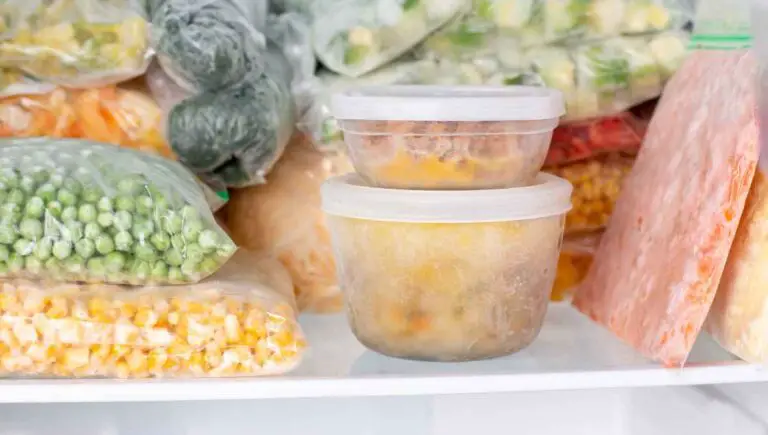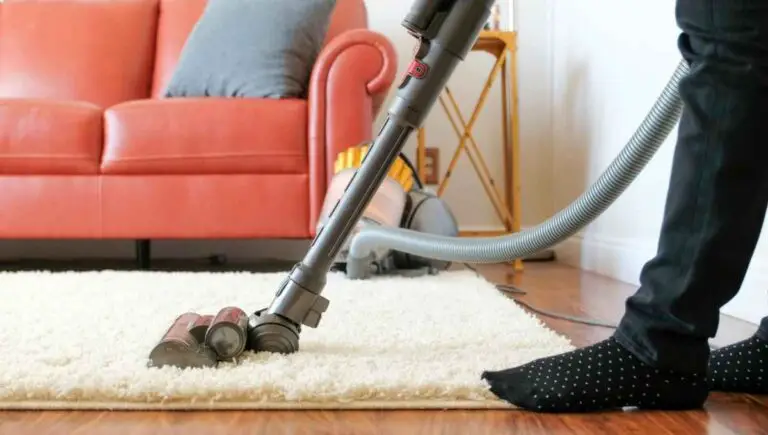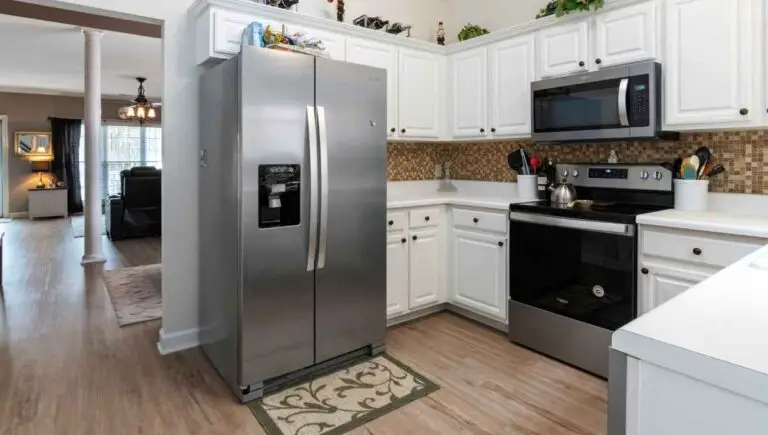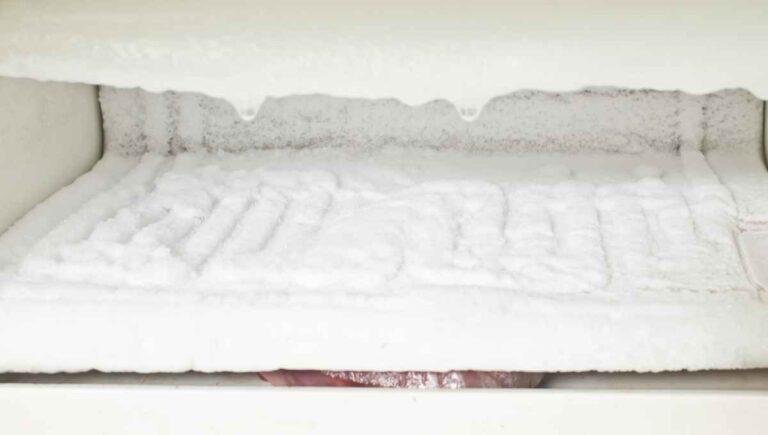Can I Use My Refrigerator Without the Water Filter Attached?
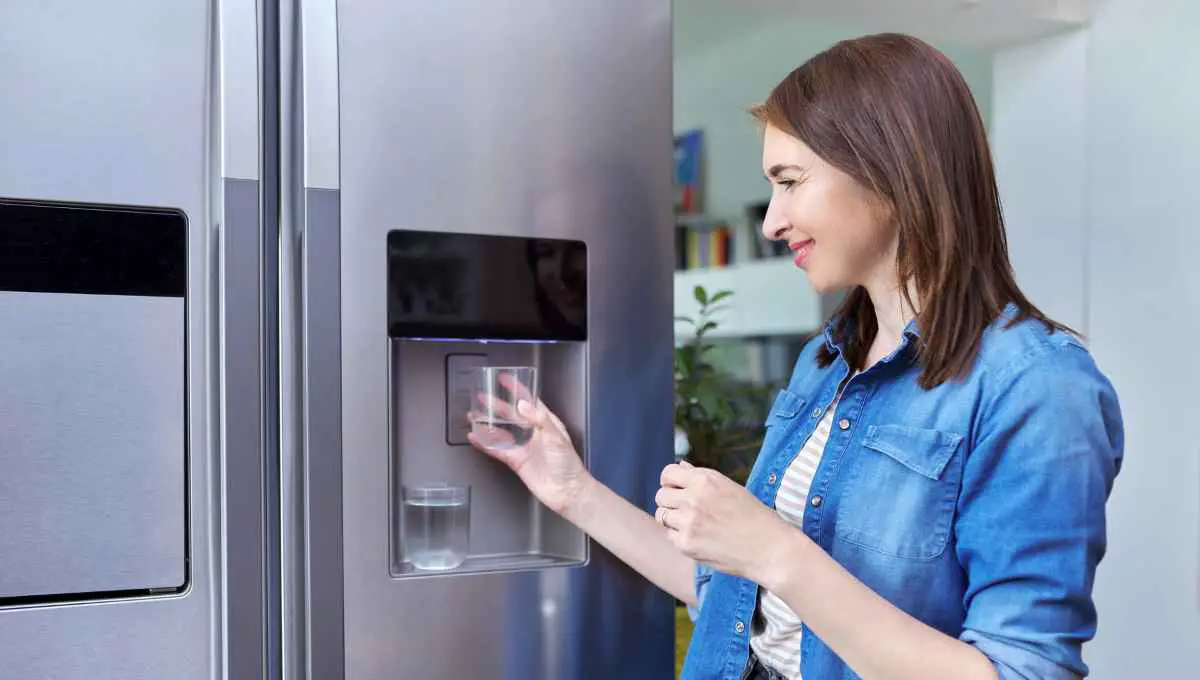
If you’ve just bought a fridge and decided that you don’t need the ice maker or the water dispenser, you’ve probably wondered if you can use the refrigerator without the water filter attached. After all, it’s just in the way, right?
You can use your refrigerator without the water filter attached as long as having clean water and ice isn’t important to you. You’ll need to get a bypass plug to replace the filter. This lets you turn off the ice maker or water dispenser without affecting other parts of your fridge’s functioning.
Of course, there are other options and other reasons not to use a water filter. This article will dive into the most common reasons to avoid filters and your options. We’ll also chat a bit about why you may want to use a filter. Stick with us!
This post contains affiliate links. This means Household Blogger may earn a commission should you make a purchase using any of our links. Please refer to our full affiliate disclosure policy for full details.
Here’s a Quick Pro Tip!
When it comes down to it, you’ve got three options for your refrigerator. You can run your water without a filter, you can use a bypass plug, or you can replace the filter every six months.
Assuming you’re not going to try and run your refrigerator without a filter, here are the best replacement options for your fridge:
1. GE Bypass Plug – This model will work for most GE refrigerators.
2. EvertechPRO – This model fits Sears/Kenmore appliances.
3. Filter Bypass Cap – This model fits Whirlpool and Maytag refrigerators.
Refrigerator Water Filters
It’s well known that most refrigerators can’t make ice or dispense water if the water filter isn’t attached, but what about the rest of the refrigerators?
In this section, we’ll talk about how important a water filter really is to the rest of your fridge.
What to Do if Your Fridge Doesn’t Have a Water Filter?
If your fridge is currently without a water filter, you have two choices, either replace the water filter or get a bypass plug instead. Either way, your refrigerator will still work as intended.
A water filter bypass plug simply gets installed over the water line in your refrigerator.
It eliminates the need for a filter while still allowing your water to reach the ice maker and dispenser, but the water may not be safe to drink.
Can You Use the Fridge Without a Filter?
You can get water and ice from a fridge, even without a filter, as long as there’s a bypass in place. In fact, some fridges don’t even require that, but it is recommended to ensure water does not leak.
If you do not have a well or certified clean water coming directly through your water lines, you want to use a filter.
If your water isn’t clean, the filter will remove contaminants and make it safe to drink or use for ice cubes.
Can You Leave the Water Filter Out of the Refrigerator?
Water filters can typically be left out of a refrigerator without much issue. However, your ice maker and water dispenser may not work without a clean filter or bypass unit. If this is the case, you will not be able to get water from your fridge until one of the two has been installed.
If your fridge does not require one of those two options to dispense water, you will be clear to use the refrigerator for water or ice as you see fit.
Be cautious, however, as plenty of bacteria can survive in freezing conditions, and the ice may not be safe for consumption.
Can I Use My Fridge Without a Water Filter?
Your fridge will keep food cold regardless of the water filter status. However, if you want clean ice and water from your refrigerator, you may need to replace the filter before it dispenses them.
Some refrigerator models do not allow unfiltered water to pass through. However, you can typically purchase a water line bypass cap for your fridge, allowing water to divert from the filter stage.
What Happens if You Don’t Replace Your Refrigerator Water Filter?
If your refrigerator’s water filter gets old and dirty, remove it, even if you don’t replace it. Once it’s been removed, you may not be able to get ice or water directly from your refrigerator, but the unit will still work to keep your food cold.
If you do not remove the soiled water filter, you may experience mold build-up, and your unit may stop allowing water dispensing. Additionally, if the water is allowed to dispense, it may make you ill.
How Do You Bypass a Refrigerator’s Water Filter System?
The safest and easiest way to bypass a refrigerator’s water filter system is to purchase a water line bypass cap. This cap takes the place of the refrigerator’s water filter to allow water to continue through the system.
Each refrigerator manufacturer has its own bypass system, but you can find most online for under $50.
Additionally, if you don’t want to purchase a bypass cap, you can find replacement water filters as well.
Keeping It Running
Having a water filter in your refrigerator can be useful if you want fresh water straight from the fridge, but not everyone does.
So, what happens if you don’t have a filter? Will the fridge still work? We’re talking about that now!
Does a Fridge Need a Water Filter?
A fridge does not need a water filter to function as a way to store cold food. If, however, you want to make ice and dispense clean water directly from your refrigerator, those functions will not work without the water filter.
A water filter on your refrigerator’s water line is necessary to ensure that the ice and water your refrigerator makes and uses are safe for consumption.
Without it, your ice may be contaminated and can make you very ill.
Will a Refrigerator Work Without a Water Filter?
A refrigerator will still work to keep your food cold, even if you do not have a water filter. However, it will most likely be unable to make ice or dispense cold water if the filter or a bypass cap has not been installed.
Your refrigerator is designed to work independently between food storage and water dispensing, and ice making.
So even if something is wrong with your ice maker or water dispenser, such as the water filter being missing, it does not affect your fridge’s ability to keep food cold.
Do All Refrigerators Need Water Filters?
Refrigerators only need water filters if you rely on your fridge for clean cold water and usable ice cubes. You can disconnect the water filter and lines without issue if these don’t matter to you.
Suppose your water is safe to drink without filtering.
In that case, you can also install a bypass cap over where the filter would sit in your refrigerator, allowing the water to be dispensed or turned into ice cubes without passing through the filter.
Will My Fridge Still Run Without a Water Filter?
Your refrigerators’ ability to run and filter water does not rely on each other to work. Therefore, you can still run your fridge to keep food cold even if you don’t have a water filter.
However, if you wish to get clean water and ice from your refrigerator, you will need to install a new water filter.
Unfortunately, most refrigerators are designed to ensure they only dispense water with a filter installed.
Can I Run My Refrigerator Without a Water Filter?
A refrigerators cooling system and water filtration system run independently, so you can keep your food cold without installing a water filter. Not having a filter will not stop your refrigerator from running.
Thankfully, having a functional water filter is not a requirement to keep your food cold in your refrigerator.
However, some smart fridges may send you warnings and notices until you replace the water filter.
Replacing Filters
We’ve discussed that your refrigerator does not need a water filter in order to keep food cold but that they are necessary to have fresh water and ice from the dispensers.
So, let’s talk a bit about replacing filters before we wrap up!
How Do I Know if My Refrigerator Water Filter Is Bad?
Most smart refrigerators will now notify you if your water filter is bad. If you don’t have a smart fridge, you may notice that your water is tasting bad or that the fridge isn’t producing ice as quickly.
You should replace your water filter every six months or more often if you have lots of contaminants in your water.
Failure to replace your water filter may lead to decreased water and ice production as well as potentially contaminated ice and water.
How Do I Know When My Fridge’s Water Filter Needs Replacing?
There are several signs that your water filter might need replacing. If your fridge has a warning light, it will turn on when your filter is getting old. You should replace your filter every six months, even if the light hasn’t come on yet.
Here are some other signs its time to replace the water filter in your fridge:
- Your water has an odd, metallic taste.
- The water is dispensing slower than usual.
- There is no water being dispensed at all.
- The water is cloudy.
- The water smells odd.
- Your ice cubes have gotten smaller or smell bad
- There are black specks in your ice cubes
- Ice will no longer dispense
- Your ice is cloudy
How Long Are Refrigerator Water Filters Really Good For?
Refrigerators’ water filters are good for a maximum of six months. This number may decrease if your water has lots of chemicals or is overly hard. If you notice the water in your refrigerator is cloudy or foul-smelling, it’s time to change the filter.
You should also change out your filter if the water dispenser starts slowing down while dispensing water.
Additionally, if your ice gets smaller or takes longer to complete a cycle, it’s time to change the filter.
Is It Really Necessary to Change Your Refrigerator Water Filter Every Six Months?
Even though it can get inconvenient and even expensive, it is important and necessary to change out your refrigerator water filter every six months or less.
Not changing the filter can have consequences ranging from your fridge being unable to dispense water and ice to getting ice that has bacteria in it that can make you ill.
While no one likes changing a water filter, failure to do so can cause damage to your refrigerator and yourself.
In addition, an inadequate water filter can lead to ice and mold build-up and can stop preventing bacteria from getting into your drinking water.
How Often Do You Have to Change Out Your Refrigerator’s Water Filter?
You have to change out your refrigerator’s water filter every six months at most. These filters need to be replaced in order to keep your water dispenser functioning optimally, as well as prevent illness and mold build-up.
The good news is that replacing your water filter twice a year shouldn’t be an overly expensive proposition. Most water filter replacements cost under $50 a filter, and you can buy more than one at a time.
Just store them in a cool, dry place, and don’t remove any protective coverings until it’s time to install them.
Why Is a Fridge’s Water Filter Important?
A fridge’s water filter is important because it ensures that your water is safe for consumption. Your refrigerator may automatically stop dispensing water and ice without a water filter.
On the other hand, if your fridge does not have an automatic override, the ice made from the improperly filtered water may be contaminated.
You might also enjoy our post on Can I Drink Water Out of the Kitchen Sink?
Related Questions
Can a Refrigerator Ice Maker Work Without a Water Filter?
In the majority of cases, your refrigerator’s ice maker will continue to produce ice, though some models may require a bypass cap to keep working properly. Some models, however, will not work without the filter or bypass cap.
However, even if your refrigerator makes ice without a filter, the ice produced may have chemicals or other contaminants, depending on the water’s source. So, use caution if you plan on ingesting those ice cubes.
Do I Need a Refrigerator Water Filter if I Have Reverse Osmosis?
If your home utilizes reverse osmosis, you do not need an additional water filter for your refrigerator. Instead, it’s best to install a bypass plug to prevent water seepage in the fridge.
Some manufacturers offer or automatically supply a bypass plug when you purchase a new refrigerator, but you can also purchase one online if they don’t.
Depending on the model, you may also be able to run your refrigerator without the water filter; no plug is needed.
Which Is Better, Tap Water or Refrigerator Water?
Refrigerator water, unless filtered, is exactly the same as the water from your tap. This is because they are coming from the same source, your water lines. The only difference is that your refrigerator has chilled the water you get.
Therefore, if you wouldn’t drink water directly from your tap, don’t drink it from your fridge unless you have a filter.
Unfiltered water isn’t typically safe to drink, plus mold and other build-ups can occur in your refrigerator unless filtered out.
Final Thoughts
Having a fridge that makes ice and dispenses water can be really useful, but it’s important to know that the water from the fridge is properly cared for.
So make sure to change out your filters every six months, and enjoy your water!





